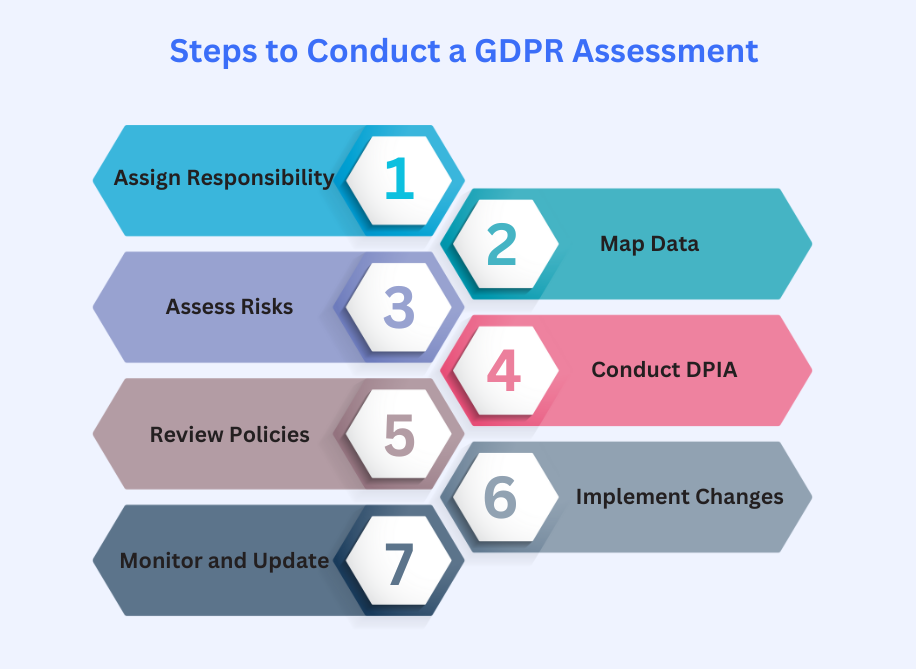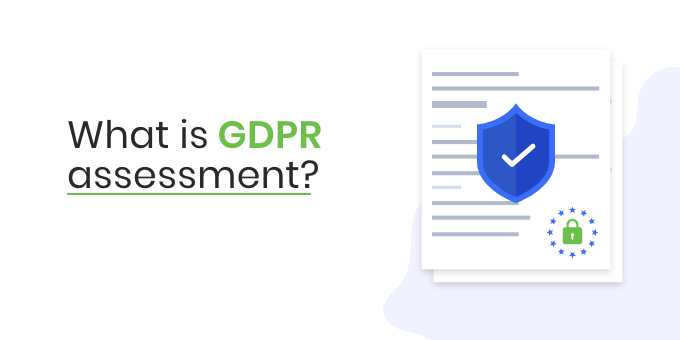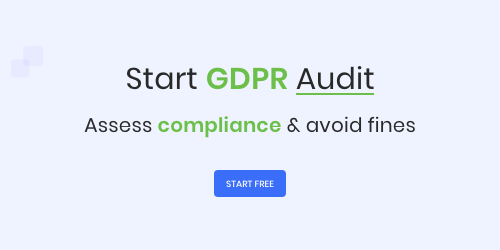GDPR assessment
In order to comply with the General Data Protection Regulation (GDPR), organisations must conduct a GDPR assessment.
“This enables an organisation to identify the key risks and implement an action plan to mitigate these risks covering: GDPR staff training, data protection impact assessment (DPIA), implementing GDPR compliant policies and procedures, implementing a GDPR compliant cookie consent solution on their company website and effectively managing data subject access requests (DSAR).”
Areas to focus on when developing an action plan
There are some areas that require intense focus when developing an effective action plan to comply with the General Data Protection Regulation (GDPR) for an organisation. These include:
Data Processing:
Before data processing, uphold these inquiries. What is the right time to comply with the GDPR? So, when was the GDPR assessment conduct previously or has the company implemented the specific measures regarding processing activities? Also the purpose of the GDPR assessment is to find out the vulnerabilities akin to processing operations and data processing.
Data Management:
This indicates the detailed information regarding all the procedures implemented to tackle data and its management across an organisation.
Privacy Policy
The privacy policy also identifies compliance with corporate policies as well as the GDPR.
Rights of the data subject
At times, data processing increases the risk to the rights and freedom of the data subject. Under the GDPR, reducing the risk factors is compulsory. And organisations must ensure they have in place an effective DSAR system.
Governance
In this area, the covers the governance structure, awareness activities and the existence of identified figures required by law.
Data Projection
This covers identifying gaps and endeavours to abolish them. Corporate websites, web applications, and IT infrastructure are the main areas to be assess. Because more significant risks are likely to found in these areas. To spot vulnerabilities, specific tools like Vulnerability Assessment and Network Scan are already present to perform the task.
Data Protection Impact Assessment (DPIA)
This involves conducting a data protection impact assessment (DPIA) for high risk or high impact projects or business areas.
Privacy and Design
This involves taking adequate measures to minimise data privacy risks during the design phase.
Importance of GDPR assessment:
GDPR data privacy assessment is replete with innumerable features, all to aid you with the best data protection solution. The key benefits for an organisation include
Report
After completing the GDPR assessment, a report will produce that will help identify key gaps. And risks and help in identifying the best solution, as well as the risks they are exposed to. It serves as a foundation for developing solutions to rectify these gaps.
Action plan
Your company will able to formulate an effective action plan based on the report by the GDPR assessment. This plan outlines the steps needed to mitigate risks and achieve full GDPR compliance. It may involve enhancing security measures, updating policies, or implementing new data protection practices.
Data privacy platform
The GDPR assessment will help an organisation to Identify a suitable data privacy platform that can help by providing a “one-stop” solution. These solutions make it easier to comply with privacy laws by providing tools for managing permission, tracking compliance, and protecting personal data.
How to Conduct a GDPR Assessment
Conducting a GDPR assessment can seem daunting, but following a structured approach can make the process more manageable. Here’s a step-by-step guide:

Assign Responsibility: Start by appointing a Data Protection Officer (DPO) or a dedicated team responsible for overseeing the GDPR self assessment process.
Map Data: Make a list of all the personal data that your company handles, together with its storage location, users’ permissions, and methods of sharing with outside parties.
Assess Risks: Determine any gaps in your data security procedures and evaluate the risks related to the personal information you manage.
Conduct DPIA: For high-risk processing activities, perform a Data Protection Impact Assessment to evaluate privacy risks and develop mitigation strategies.
Review Policies: Make that your staff training programs, data retention policies, and privacy policies all adhere to GDPR regulations.
Implement Changes: Resolve any vulnerabilities or hazards found during the evaluation by implementing measures like improving security protocols, updating privacy guidelines, or providing more staff training.
Monitor and Update: GDPR compliance is an ongoing process. To ensure compliance with new rules or business changes, evaluate your data protection processes on a regular basis and update your GDPR assessment as appropriate.
The Benefits of Regular GDPR Assessments
Performing regular GDPR assessments offers several benefits beyond simply avoiding fines. These include
Improved Security
Regular assessments help businesses identify and address security vulnerabilities, reducing the risk of data breaches and cyberattacks.
Enhanced Reputation
Companies that consistently protect customer data through GDPR compliance build a positive reputation, which can translate into increased customer loyalty and trust.
Operational Efficiency
By streamlining data protection practices and improving internal procedures, businesses can enhance operational efficiency, reducing the time and resources spent on managing data privacy concerns.
Legal Protection
A thorough GDPR assessment provides documented evidence that your organisation is taking proactive steps to comply with GDPR, which can be useful if legal challenges arise.
Conclusion
Any organisation hoping to comply with the GDPR must have a GDPR assessment. This assessment not only helps identify important hazards associated with data processing, privacy regulations, and the rights of data subjects, but it also offers a direct route for implementing solutions via an executable plan.
Organisations may protect their reputation and the confidence of their clients by carrying out routine evaluations that fortify their governance frameworks, optimise data management procedures, and boost security measures.
A GDPR assessment offers many more advantages than just compliance; in today’s privacy-conscious market, it may provide you a competitive edge by providing enhanced data privacy protections, operational efficiency, and legal protection.



